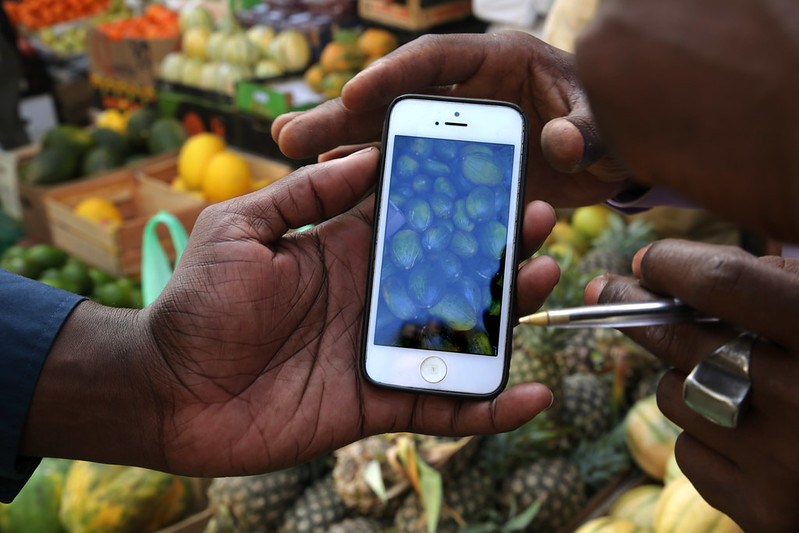With the exception of South Africa where the country has a fairly developed formal retail sector, all the other African countries have a relatively underdeveloped formal retail sector.
However the widespread usage of online retail or electronic commerce (e-commerce) is creating new opportunities in Africa. Africa’s e-commerce market is creating a newfangled shopping experience, particularly for the region’s growing middle class.
For the Small and Medium-Sized Enterprises (SMEs) sector, e-commerce is stimulating significant growth. As the sector that accounts for the lion’s share of businesses in Africa, the reliance on e-commerce is giving these small businesses access to a large customer base and eventually the capacity to scale up.
Similarly, in the agriculture sector which is the backbone of most countries in Africa, e-commerce is improving access to markets and also enhancing the pricing power of farmers. Projections made by McKinsey Global Institute (MGI) suggest that by 2025, e-commerce could account for 10% of the entire retail sales in Africa’s largest economies; a value that is equivalent to $75 billion online sales per year.
The growth in Africa’s e-commerce market is largely attributed to the upsurge in the size of the middle class and the rapid mobile phone penetration. In 2011, the African Development Bank (AfDB) noticed the remarkable growth in the middle class and asserted that Africa’s middle class, thus the population that earns an annual income of more than $3,900, had tripled within a 30 year period to 313 million; a size that represented more than 34% of the region’s total population at that time.
The improvement in purchasing power parity is as a result of two main factors; availability of stable, well-paid jobs and improved access to higher tertiary education. The AfDB further estimates that by 2030 the population of Africa’s middle class could increase tremendously if middle-class friendly policies are implemented. Such germane policies will concurrently lead to an upswing in the income levels of the middle class which will ultimately have an appreciable impact on the region’s e-commerce market.
As the world’s fastest-growing mobile telecommunication market and also home to the second most-digitally connected population after Asia; mobile phone penetration continues to soar as the region has recorded an average of 30% growth in mobile phone penetration since 2000. With close to 50% of the region’s population using the internet daily and a household consumption that could reach $2.5 trillion by 2030, Africa’s e-commerce market has an enormous potential as 43% of the continent’s population will be in the middle or upper class and one in five of the world’s consumers will be in Africa by that time.
Although the immense growth in the mobile market and the expansion of the middle class signifies that Africa’s e-commerce market has promising prospects, many challenges have constrained the region’s e-commerce market from fully burgeoning. Highlights of a report from the United Nations Conference on Trade and Development (UNCTAD); Business-to- Consumer (B2C) e-commerce index for 2018, indicates that Africa’s e-commerce market was worth approximately $5.7 billion in 2017, representing less than 0.5% of the region’s entire gross domestic product (GDP) and far below the global average which is more than 4%.
The report shows that whiles internet users in developed countries were actively engaged in online shopping with about 68% of internet users in the European Union frequently making online purchases in 2017, only 13% of internet users made purchases online in Africa during that same period. In 2017, there were at least 21 million online shoppers in Africa; three countries, Kenya, Nigeria and South Africa accounted for nearly 50% of the total population of online shoppers in Africa.
Since 2014, the population of Africa’s online shoppers has increased by an average of 18% per year; this value is higher than the global average growth rate of 12%. An in-depth analysis of Africa’s mobile market suggests that if the ratio of online shoppers to internet users is increased to 50%, thus if half of internet users in Africa shopped online, an additional population of 77 million online shoppers will be added to the region’s population of online shoppers; this progress could boost revenue generated by B2C more than twice.
Africa’s e-commerce market could be worth more if more than half of the region’s population adopt online shopping. Currently, the prevalence of cybercrime in Africa has discouraged a large proportion of the population, specifically internet users from shopping online. Most internet users do not trust transactions on online shopping platforms; this situation partly accounts for the low patronage of online shopping platforms.
Policy makers through the assistance of development partners and relevant stakeholders could implement evidence-based policies that will serve as an effective regulatory framework in the mobile market space. By strengthening regulatory frameworks that focus distinctively on cybersecurity across all countries in Africa will mitigate cybercrime and make online shopping appealing to consumers in the region. Such policies should be accompanied with meticulous education programmes that enlighten users of online shopping platforms on the apt practices to adopt to minimize cybercrime in e-commerce transactions.
In addition, Governments in Africa should commit adequate resources to foster financial inclusion and develop infrastructure such as physical addressing system, roads, railway networks and other means of transportation that could improve logistics for e-commerce and also integrate e-commerce markets in Africa. By aligning the development of infrastructure in every African country with the strategic framework of the African Continental Free Trade Area (AfCFTA), countries in Africa will benefit from intra-African trade that will be facilitated by e-commerce. Providing appropriate logistics and integrating e-commerce markets in Africa will increase the value of the region’s e-commerce market.
Alexander Ayertey Odonkor


